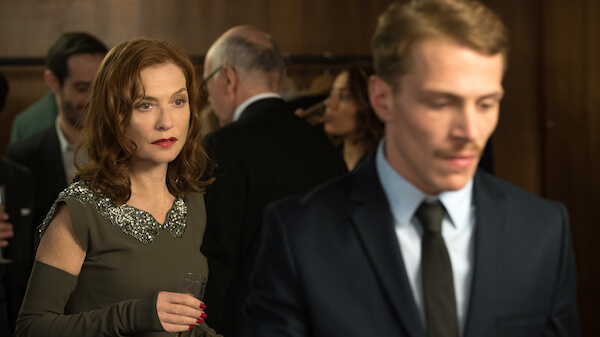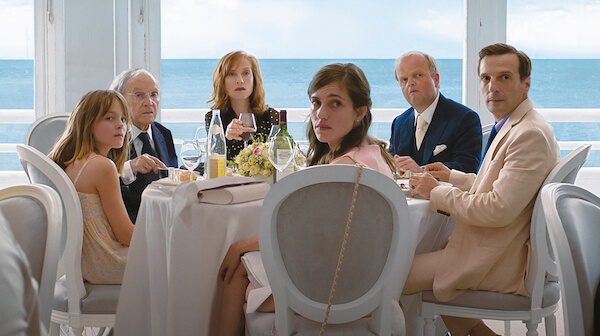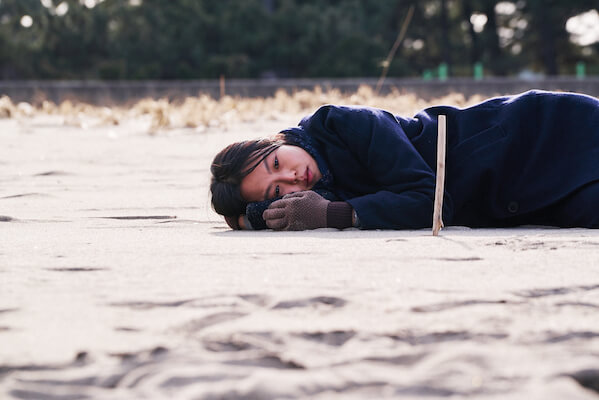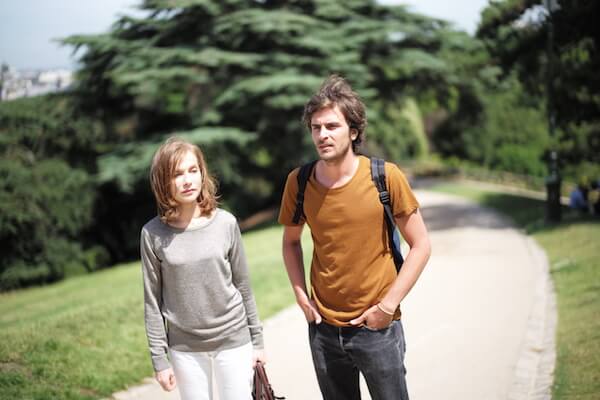Sandra Hüller in Maren Ade’s “Toni Erdmann,” which screens at the New York Film Festival on October 2 and 4. | KOMPLIZEN FILM/ SONY PICTURES CLASSICS
Did someone at the New York Film Festival take a look at my article on last year’s festival, which complained about its lack of diversity? While female directors are still far from parity in the festival’s Main Slate, their numbers have increased. Most notably, the festival’s opening night film is Ava DuVernay’s “The 13th” (Sep. 30, 6 & 9 p.m.), a documentary by an African-American woman.
Even many of the films made by men focus on women. Gay directors included this year run the gamut from João Pedro Rodrigues to Terence Davies to Pedro Almodóvar. But the most buzz around an LGBT-themed film in the festival centers around Barry Jenkins’ “Moonlight” (Oct. 2, 6:15 p.m.; Oct. 3, 9 p.m.), a three-part tale of the coming of age of a young black man.
The festival’s sidebars have continued to spiral in all directions, this year including a Henry Hathaway retrospective and a series of classic French films organized around Bertrand Tavernier’s documentary “A Journey Through French Cinema” (Oct. 1, noon; Oct. 2, 2:45 p.m., and related screenings).
Three curtain-raisers for festival unspooling September 30-October 16
German director Maren Ade’s “Toni Erdmann” (Oct. 2, 2:30 p.m.; Oct. 4, 8:45 p.m.) opens a window onto the world of contemporary upper middle class Europe. If that sounds like a limited perspective, Ade would probably be the first person to admit to it. Most of her film is set in Romania, and a scene in which a German man searches for a bathroom among the Romanian countryside is pointedly left unsubtitled. Her narrative also revolves around a German-run company outsourcing jobs from Romania.
Beyond that, “Toni Erdmann” is simply a marvel of pacing and direction. At 162 minutes long, it never lags. It asks big questions while retaining a welcome silliness. And its abundance of nudity will test the MPAA’s prudishness.
The characters gradually grow in complexity, especially Ines (Sandra Hüller), who starts off acting like a snide, over-entitled yuppie. Her father (Peter Simonischek) assigns himself the role of agent of chaos in her life, leading to a plot twist I can’t reveal. The title refers to Andy Kaufman’s boorish alter ego Tony Clifton. Ade uses carefully controlled handheld camerawork and cinematography that, although quite crisp and clean, calls attention to the fact that it’s video. Don’t be put off by the length; this is one of the year’s most entertaining films.
Emma Suárez in Pedro Almodóvar’s “Julieta.” | EL DESEO/ MANOLO PAVÓN/ SONY PICTURES CLASSICS
Spanish director Pedro Almodóvar’s “Julieta” (Oct. 7, 6 p.m.; Oct. 8, 12:30 p.m.) exemplifies what critic Kevin Lee calls “the pornography of tastefulness.” Its supposed subjects are motherhood and grief, but what really comes across is the way Almodóvar manages to work bright primary colors into every scene. “Julieta” is production-designed within an inch of its life. Its characters’ apartments look like art galleries or fashion magazine layouts, rather than spaces where anyone would actually live.
The titular heroine (played as a young woman by Adriana Ugarte and a middle-aged one by Emma Suárez) jots down her memories of her daughter Antía (played by three different actors at various stages of her life.) Antía blames Julieta for a fishing boat accident in which Julieta’s husband Xoan (Daniel Grao) dies, and when she turns 18, she disappears from her mother’s life.
Almodóvar is working from excellent source material —three linked short stories by Nobel laureate Alice Munro —but the result is still a rote melodramatic exercise whose emphasis on maternity and tendency to shove men out of the picture does little more than evoke better Almodóvar films like “The Flower of My Secret” and “All About My Mother.”
Laurent Lafitte and Isabelle Huppert in Paul Verhoeven’s “Elle.” | GUY FERRANDIS/ SBS PRODUCTIONS/ SONY PICTURES CLASSICS
“Elle,” made by Dutch director Paul Verhoeven (Oct. 14, 9 p.m.; Oct. 15, 3 p.m.) in France, is a strange beast: half art film, half ‘70s exploitation vehicle (complete with four brutal rape scenes). The story of Michele (Isabelle Huppert), a woman who’s sexually assaulted in the opening scene, it seems to go out of its way to provoke. At first, its depiction of Michele’s blasé reaction to her rape seems like a male fantasy of female invulnerability, but it soon becomes clear that she’s not as well as she thinks she is —she commits small acts of aggression like crashing into her ex’s car —and that her psychological damage extends well before her rape. It’s being marketed as a rape-revenge thriller, but it’s more of a character study, with heavy echoes of Hitchcock and Verhoeven’s “Basic Instinct.”
Huppert does a terrific job of avoiding playing Michele as a helpless victim or an unbelievably strong role model. In fact, Michele is a rather cold and unpleasant woman navigating a cruel world —she casually mentions that she broke up with her boyfriend because he hit her, and the video game company she heads is designing a game that looks like an invitation to rape, but she doesn’t care.
This may be Verhoeven’s most misanthropic film yet, with almost all the men turning out to be dangerous jerks, but it finds a grain of hope in a crypto-lesbian relationship. In the age of trigger warnings, Verhoeven is just as out of place as he was when he made “Showgirls,” but “Elle” shows him adapting back to working in Europe, albeit not as smoothly as in his 2006 “Black Book.”
54TH NEW YORK FILM FESTIVAL | Presented by the Film Society of Lincoln Center | Sep. 30-Oct. 16 | Lincoln Center, various venues | filmlinc.org/nyff2016





































